Lost Ruins of Arnak sees players deck-building through a jungle.
Is it as good as people say it is?
On an uninhabited island in uncharted seas, explorers have found traces of a great civilization. Now you will lead an expedition to explore the island, find lost artefacts, and face fearsome guardians, all in a quest to learn the island’s secrets.
Lost Ruins of Arnak Game Play
This is far from comprehensive but covers the important points of gameplay.
So setup involves a big board in the middle of the table with cards and tiles all over it. I’m not going to go into detail now, we’ll cover everything we need to on the board as we go through gameplay.
Players get a player board, a magnifier and notebook token on the research track, 2 archaeologist meeples and 6 starting cards. Players get some starting resources depending on turn order.
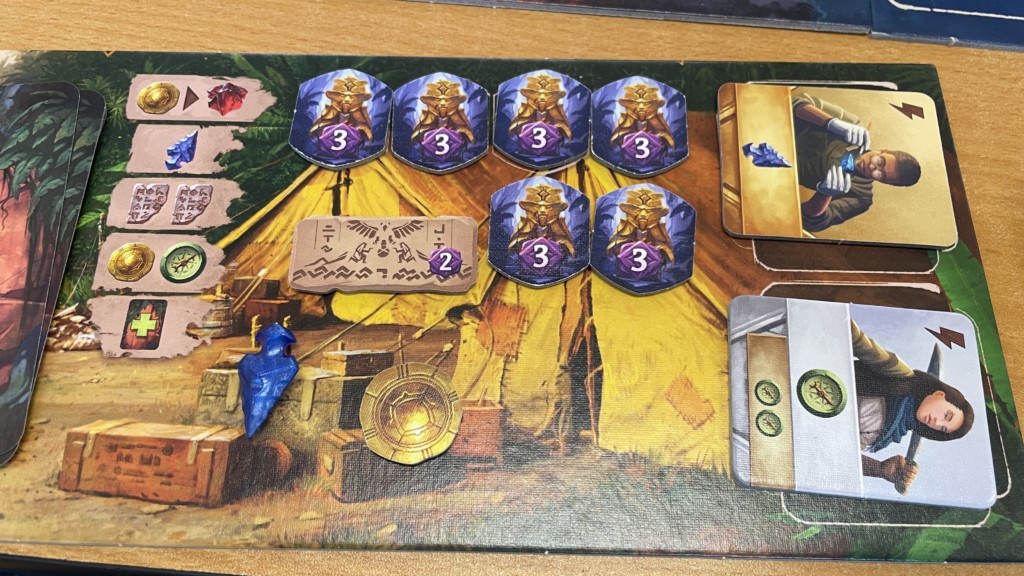
On a turn, a player takes one Main Action and any number of free Actions.
This is a deck-building game with each card played to travel (Boot, Car, Boat, Plane icon) or for its effect, but not both. Some have a lightning symbol that can be played as a Free Action.
Main Actions
Dig at a Site
Dig at any of the five Tent sites initially, later in the game you can dig at sites further in as they are discovered.
To dig, pay the travel cost shown using cards in hand, tokens and/or coins. Gain the income for that site.
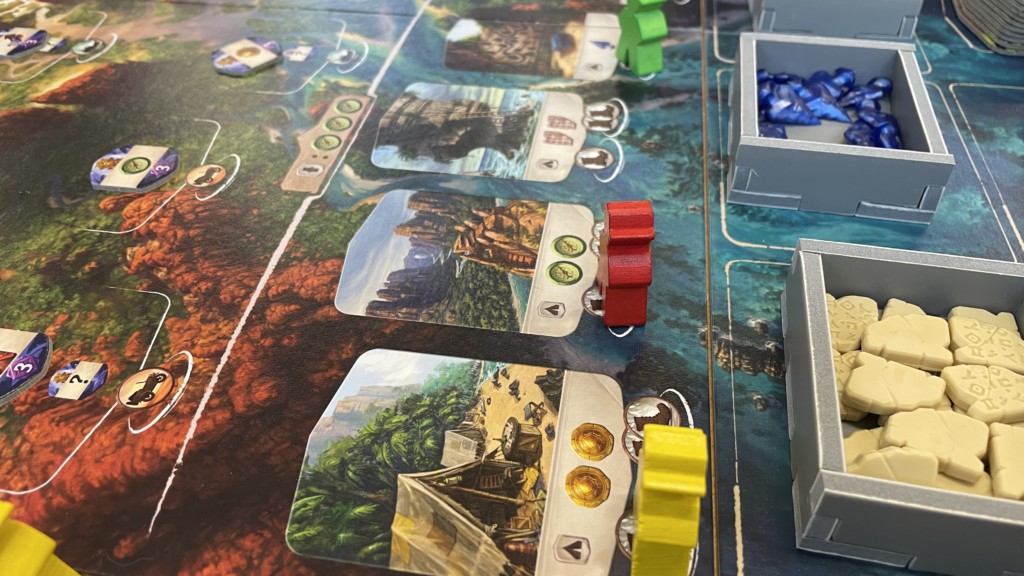
Discover a New Site
Take the tile for the corresponding site and resolve it. Draw the top tile from the Guardian Stack and place it face-up on the site tile.
To remove a Guardian, you must have an archaeologist meeple at the site. Pay the resources to remove it and gain the bonuses shown
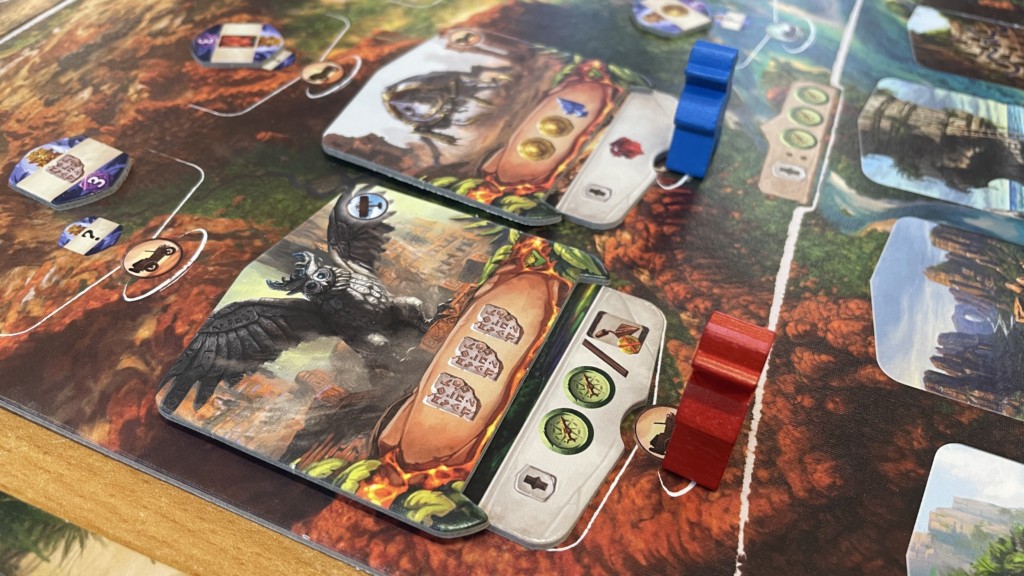
Buy a Card
Buy a card from those available. There is a shifting row of cards containing artefacts on the left of the Moon Staff divider (don’t ask) and Items on the right. Pay the coins for items or compasses for artefacts. Purchased items go on the bottom of your deck, artefacts go in your play area and are resolved now.
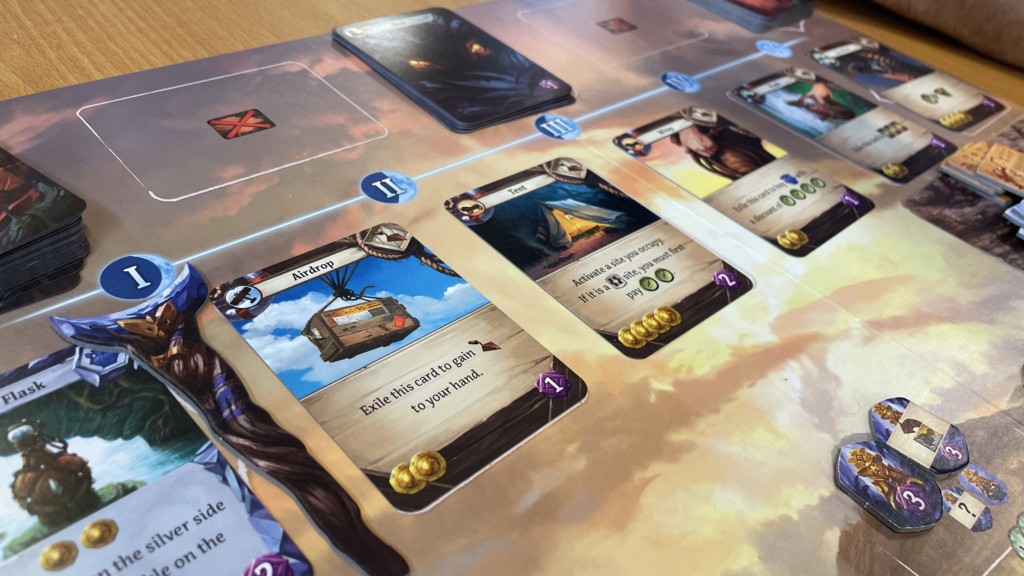
Play a non-free Action Card
Play it face-up and resolve it.
Advance Research
Advance one of the research tokens on the research track. Choose either the notebook or the magnifying glass but the notebook can never go higher than the Magnifier. Pay the cost for the space and gain the benefits.
One other thing worth mentioning is the assistants. These are people you can get that provide additional actions and bonuses. Usually, they’re tapped to activate on your turn. They can also be upgraded and flipped over for a better effect.
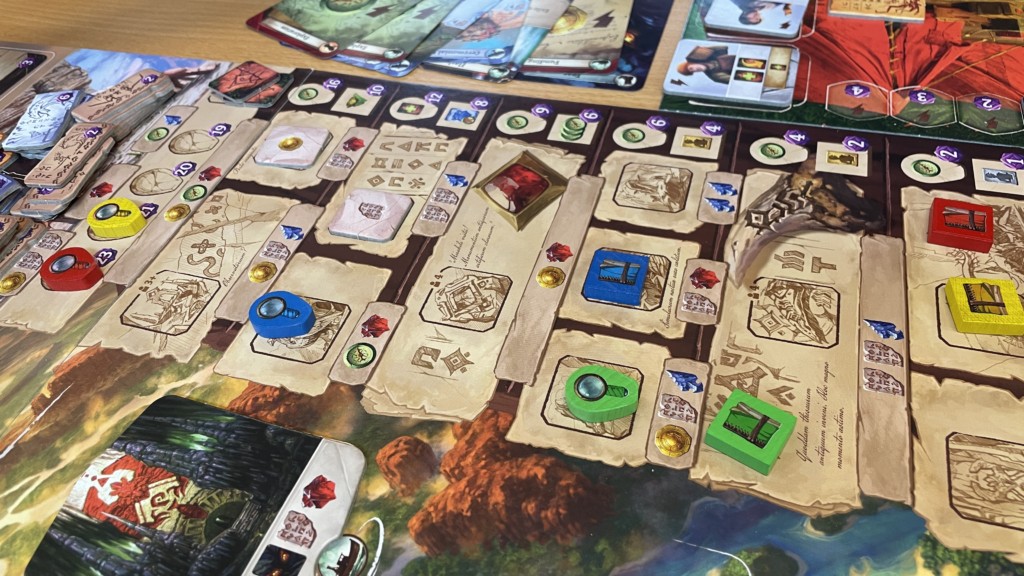
Pass
You get no more turns and the round ends when all players have passed.
Setting Up Rounds 1-4
Return all archaeologist meeples, and add a rubbish fear card to your deck if there was a Guardian at that location. Players can also choose to discard as many cards as they like. Played/Discarded cards are shuffled and placed on the bottom of the deck. Refresh assistants by un-tapping them.
The row of cards you can buy from refreshes with the Moon staff moving one space to indicate the round number but also changing the Artefact vs Item balance.
At the end of round 5, the game ends.
Each research token scores for points based on the row the tokens are on, Temples score the amount shown, Idols score 3 points each, defeated Guardians are 5 points each, items and artefacts score the points shown on them and fear cards score -1 each.
The player with the most points wins.
Setup
Lots of things everywhere really. Tokens and things all over the board. I would consider this “Fiddley”.
It didn’t help that in our game we set up for 3 players then a 4th player dropped in. That meant getting the bits back out and adding more stuff.
Components & Artwork
The resources are really nice and everything else is decent.
The art is fine. It’s fun on the item cards, especially the parrot, but the rest of the art is just OK.
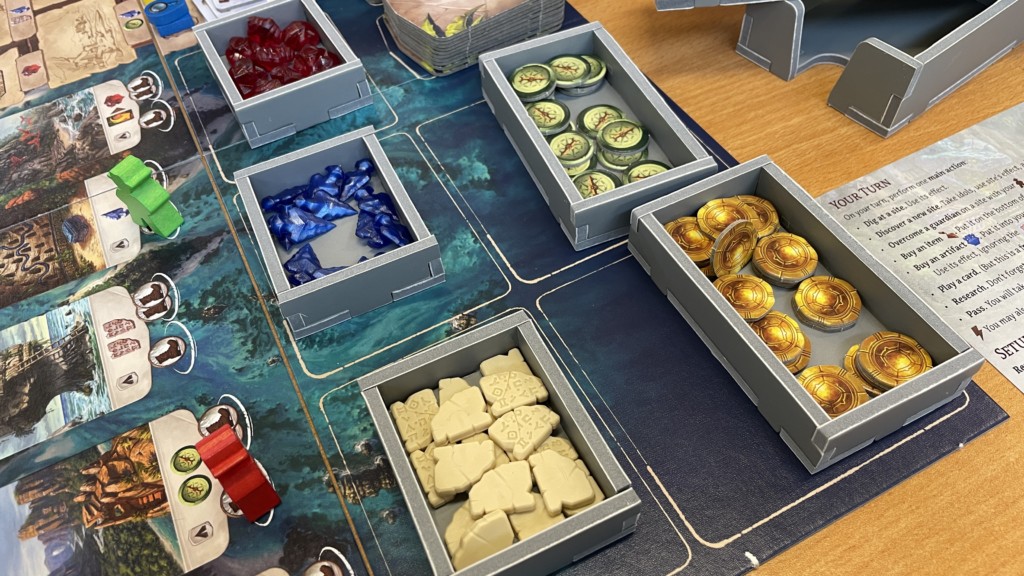
Ease of Teaching & Accessibility
It’s a fiddley one, there are easier deck builders to start with before moving to this game. Something more straightforward and a pure deck-builder to get into the swing of how they work.
Hidden cards and lot’s of stuff going on, I’d say that hinders accessibility.
Lost Ruins of Arnak Summary
The problem with this game immediately is that I played it AFTER Dune: Imperium. Both are deck-building games that claim to be hybrid despite the (alleged) worker placement element being card-driven. If cards do everything it’s a card game!
I found Dune more interesting with the combat/area control element.
But I do also like the exploration and weirdness of the purchasable cards in LRoA and the generic theme is more appealing, the game just is not as good.
Looking at it without the comparison, it’s good. I don’t think it is replayable for me, maybe the async starting decks in the expansion will help?
It just doesn’t have that free-flowing card play of a deck builder like Hero Realms, it’s more of a card-driven light Euro. It’s more resource management.
But hey, don’t let me put you off playing it. It doesn’t provide a negative experience in any way, just for me it’s good, possibly “quite good” but that hasn’t been good enough for a long long time.
Jesta ThaRogue
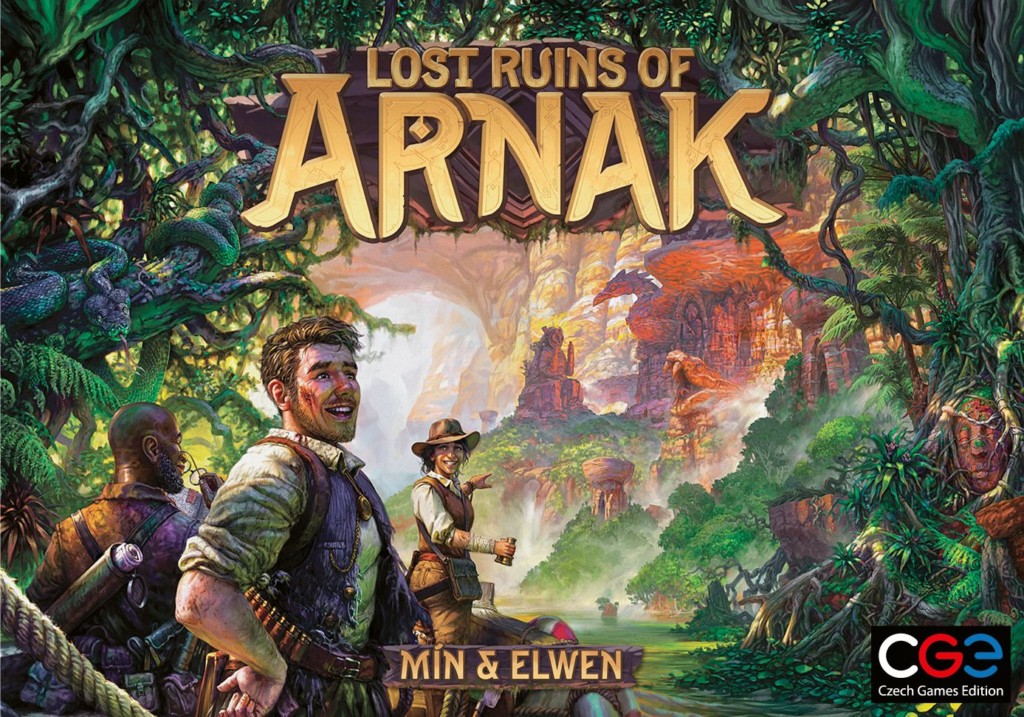


Leave a Reply